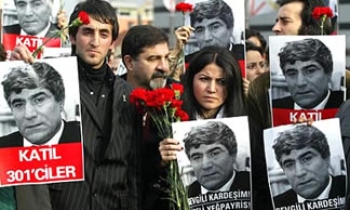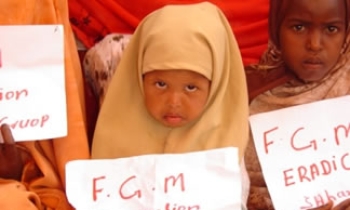STOCKHOLM: As the uproar over Prophet Muhammad cartoons continues to roil the world, the crisis has come home to the region where it originated, striking a major blow to traditional Scandinavian solidarity.
Despite the strong historical and cultural links the countries share - and their centuries of close cooperation, known here as "Nordism" - Sweden and Norway have carefully chosen to distance themselves from the conflict engulfing Denmark.
This, some politicians now say, means that even the pretense of a special relationship between the Nordic countries should be given up.
"Nordism is bankrupt," Carl Hamilton, a member of Parliament for the Swedish Liberal Party, said in a telephone interview. Hamilton said he was "ashamed" of how the Swedish government had handled the crisis, adding: "As soon as it faces a real conflict, poof! - the solidarity is gone."
In recent weeks, as Muslim protesters burned Danish embassies and flags, as well as effigies of the Danish prime minister, Anders Fogh Rasmussen, and as most of the world's leaders declared their support for Denmark, Rasmussen's Scandinavian colleagues have been conspicuously circumspect.
In Norway, there was widespread fear of being pulled into the maelstrom with Denmark after a Norwegian newspaper, Magazinet, became among the first publications in the world to reprint the Danish cartoons on Jan. 10.
Norway was a target for some of the early protests, but the pressure abated after the Norwegian prime minister, Jens Stoltenberg, openly criticized Magazinet for its decision - something Rasmussen has carefully avoided doing with the Danish newspaper, Jyllands-Posten, that first published the cartoons.
Tensions further eased after the editor of Magazinet, Vebjorn Selbekk, apologized at a joint press conference with the Islamic Council in Norway on Feb. 10. The Norwegian government has since kept a very low profile.
In Sweden, the efforts to remain at a distance from the Danish problems have been even more obvious.
The Swedish Social Democratic government, which in the past has been highly critical of the Danish conservative government's strict immigration policies, has been lukewarm in its support for Denmark.
In early February, the Swedish prime minister, Goran Persson, was openly critical, telling Swedish Radio that if he had been in the same situation as Rasmussen, he would not have "underestimated the situation, in the way you could say that they have done."
This drew a sharp reply from Rasmussen, who in an interview with the German newsweekly Der Spiegel on Feb. 13 said that he would never get involved in a domestic Swedish issue, adding that he was "especially honored to be attacked by the Swedish Social Democrats - it is a sign that our policies are the correct ones."
The Swedish government has differentiated itself from Denmark in relation to freedom of speech.
When an anti-immigrant fringe group, Sverigedemokraterna, published a new cartoon depicting Muhammad on its Web site in early February, officers of the Swedish security police and a midlevel political adviser with the Foreign Ministry contacted the Internet service provider, after which the site was closed down.
The Swedish foreign minister, Laila Freivalds, said that top ministry executives were not involved in the decision to contact the Internet service provider, but the issue has been referred to the Swedish Parliament Committee on the Constitution for further investigation.
Meanwhile, Aftonbladet, the biggest Swedish newspaper, recently published an editorial describing Denmark as "the most prejudiced, bigoted and narrow- minded country in Western Europe."
In Denmark, none of this has gone unnoticed, and commentators say that it has fueled resentment.
"This has made an already tense relationship, especially with Sweden, even sharper," said Erik Meier Carlsen, an editorial writer with the Danish newspaper BT. Carlsen said that many Danes felt Swedish criticism over Danish immigration policy had become unreasonable and aggressive, and that Persson's statements were generally viewed as "very arrogant."
"There have always been differences of opinion between Sweden and Denmark," he said in an interview, "but before it was generally good-humored. Now it is getting much more nasty, and that's something new."
Danish and Swedish critics of the Swedish government approach are drawing parallels to another perceived betrayal - when Sweden failed to support Denmark during a war with Prussia and Austria in 1864. Even convinced "Nordists" are beginning to show despair.
"This is a low-water mark," said Ake Landqvist, a former secretary general for the Swedish chapter of the Norden Association, a politically independent organization. "The Nordic wall has cracked."









